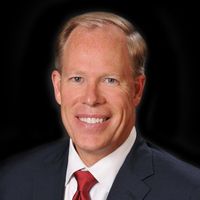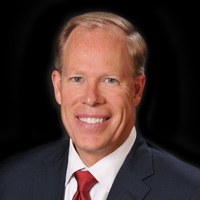Pass On The Pitch: 5 Questions to Ask When Hiring a Financial Professional
Evaluating which pro to guide your retirement plans takes more than passively listening to a sales pitch. Speak up.


Profit and prosper with the best of Kiplinger's advice on investing, taxes, retirement, personal finance and much more. Delivered daily. Enter your email in the box and click Sign Me Up.
You are now subscribed
Your newsletter sign-up was successful
Want to add more newsletters?

Delivered daily
Kiplinger Today
Profit and prosper with the best of Kiplinger's advice on investing, taxes, retirement, personal finance and much more delivered daily. Smart money moves start here.

Sent five days a week
Kiplinger A Step Ahead
Get practical help to make better financial decisions in your everyday life, from spending to savings on top deals.

Delivered daily
Kiplinger Closing Bell
Get today's biggest financial and investing headlines delivered to your inbox every day the U.S. stock market is open.

Sent twice a week
Kiplinger Adviser Intel
Financial pros across the country share best practices and fresh tactics to preserve and grow your wealth.

Delivered weekly
Kiplinger Tax Tips
Trim your federal and state tax bills with practical tax-planning and tax-cutting strategies.

Sent twice a week
Kiplinger Retirement Tips
Your twice-a-week guide to planning and enjoying a financially secure and richly rewarding retirement

Sent bimonthly.
Kiplinger Adviser Angle
Insights for advisers, wealth managers and other financial professionals.

Sent twice a week
Kiplinger Investing Weekly
Your twice-a-week roundup of promising stocks, funds, companies and industries you should consider, ones you should avoid, and why.

Sent weekly for six weeks
Kiplinger Invest for Retirement
Your step-by-step six-part series on how to invest for retirement, from devising a successful strategy to exactly which investments to choose.
Choosing a financial professional can be a daunting task.
Most advisers I know say they actually prefer it when prospective clients check out several candidates before making a decision. It’s the one of the best ways to find a good fit.
But you can’t make an apples-to-apples comparison if you just sit and listen to a bunch of pitches. Make it an interview. Ask a lot of questions. And ask the same questions every time.
From just $107.88 $24.99 for Kiplinger Personal Finance
Become a smarter, better informed investor. Subscribe from just $107.88 $24.99, plus get up to 4 Special Issues

Sign up for Kiplinger’s Free Newsletters
Profit and prosper with the best of expert advice on investing, taxes, retirement, personal finance and more - straight to your e-mail.
Profit and prosper with the best of expert advice - straight to your e-mail.
Then you can measure the pluses and minuses of each person and what they can do for you.
Obviously trust, integrity and transparency are important qualities you want to focus on. But how do you drill down to that level at a first meeting?
Here are a few questions to get you started.
1. Are you working in my best interests? Registered Investment Advisers are fiduciaries; they’re legally and ethically required to put their clients’ interests first. Brokers are held to a different standard, which requires that they make recommendations based only on the “suitability” of an investment. The products they sell don’t have to be the best or least expensive as long as they meet the client’s needs, which can open the door to conflicts of interest. If a candidate says he’s a fiduciary, get it in writing.
2. What kind of fees will I be looking at? Get this in writing, as well. You want to know about EVERYTHING: adviser fees, custodian fees, investment management fees and trading costs. Ask about disclosed and undisclosed fees. Examples of undisclosed, or hidden fees, would include trading costs and tax implications with mutual funds, spreads on bonds, and M&E costs on annuities. Only then can you compare one adviser and the products they intend to use to the next.
3. What processes do you have in place to help make sure your recommendations are in line with my risk tolerance? Risk exposure should be a big part of your conversation with every candidate. Too often, investors just turn over their money and let an adviser pick the portfolio mix. That’s like going to the doctor and getting a prescription without talking about symptoms or getting an exam. There are many tools available to assess your comfort level and capacity for risk.
4. How will I be rewarded for taking risk? This is all about gauging performance. Once you’ve talked about risk exposure and risk tolerance, you should ask about the end result — or what you’ll get back for taking that risk. You’re trusting this person with your money, so what’s in it for you? For comparison, I suggest using an industry standard, such as the Sharpe Ratio, to compare risk/return of one portfolio to another.
5. Are the investment returns your company reports audited? Who does the auditing? You want to hear that their returns are audited by Global Investment Performance Standards (GIPS), which has the most widely accepted auditing standards. The adviser you choose should have a consistent, audited track record.
Remember: Don’t fall for a sales pitch. The clearer and more prepared an adviser is with the answers to these questions, it can help you as you make decisions on your search for a financial adviser to build a relationship with. Investing is complicated — that’s why you need help. Make sure you find someone you can communicate with and someone you can trust.
Kim Franke-Folstad contributed to this article.
Profit and prosper with the best of Kiplinger's advice on investing, taxes, retirement, personal finance and much more. Delivered daily. Enter your email in the box and click Sign Me Up.

Chris Abts is president and founder of Cornerstone in Reno, Nevada. He holds a Series 65 securities registration and has earned the Certified Estate Planner (CEP) and Chartered Retirement Planning Counselor (CRPC) professional designations.
-
 Over 65? Here's What the New $6K Senior Bonus Deduction Means for Medicare IRMAA
Over 65? Here's What the New $6K Senior Bonus Deduction Means for Medicare IRMAATax Breaks A new deduction for people over age 65 has some thinking about Medicare premiums and MAGI strategy.
-
 U.S. Congress to End Emergency Tax Bill Over $6,000 Senior Deduction and Tip, Overtime Tax Breaks in D.C.
U.S. Congress to End Emergency Tax Bill Over $6,000 Senior Deduction and Tip, Overtime Tax Breaks in D.C.Tax Law Here's how taxpayers can amend their already-filed income tax returns amid a potentially looming legal battle on Capitol Hill.
-
 5 Investing Rules You Can Steal From Millennials
5 Investing Rules You Can Steal From MillennialsMillennials are reshaping the investing landscape. See how the tech-savvy generation is approaching capital markets – and the strategies you can take from them.
-
 When Estate Plans Don't Include Tax Plans, All Bets Are Off: 2 Financial Advisers Explain Why
When Estate Plans Don't Include Tax Plans, All Bets Are Off: 2 Financial Advisers Explain WhyEstate plans aren't as effective as they can be if tax plans are considered separately. Here's what you stand to gain when the two strategies are aligned.
-
 Counting on Real Estate to Fund Your Retirement? Avoid These 3 Costly Mistakes
Counting on Real Estate to Fund Your Retirement? Avoid These 3 Costly MistakesThe keys to successful real estate planning for retirees: Stop thinking of property income as a reliable paycheck, start planning for tax consequences and structure your assets early to maintain flexibility.
-
 I'm a Financial Planner: These Small Money Habits Stick (and Now Is the Perfect Time to Adopt Them)
I'm a Financial Planner: These Small Money Habits Stick (and Now Is the Perfect Time to Adopt Them)February gets a bad rap for being the month when resolutions fade — in fact, it's the perfect time to reset and focus on small changes that actually pay off.
-
 Social Security Break-Even Math Is Helpful, But Don't Let It Dictate When You'll File
Social Security Break-Even Math Is Helpful, But Don't Let It Dictate When You'll FileYour Social Security break-even age tells you how long you'd need to live for delaying to pay off, but shouldn't be the sole basis for deciding when to claim.
-
 I'm an Opportunity Zone Pro: This Is How to Deliver Roth-Like Tax-Free Growth (Without Contribution Limits)
I'm an Opportunity Zone Pro: This Is How to Deliver Roth-Like Tax-Free Growth (Without Contribution Limits)Investors who combine Roth IRAs, the gold standard of tax-free savings, with qualified opportunity funds could enjoy decades of tax-free growth.
-
 One of the Most Powerful Wealth-Building Moves a Woman Can Make: A Midcareer Pivot
One of the Most Powerful Wealth-Building Moves a Woman Can Make: A Midcareer PivotIf it feels like you can't sustain what you're doing for the next 20 years, it's time for an honest look at what's draining you and what energizes you.
-
 I'm a Wealth Adviser Obsessed With Mahjong: Here Are 8 Ways It Can Teach Us How to Manage Our Money
I'm a Wealth Adviser Obsessed With Mahjong: Here Are 8 Ways It Can Teach Us How to Manage Our MoneyThis increasingly popular Chinese game can teach us not only how to help manage our money but also how important it is to connect with other people.
-
 Looking for a Financial Book That Won't Put Your Young Adult to Sleep? This One Makes 'Cents'
Looking for a Financial Book That Won't Put Your Young Adult to Sleep? This One Makes 'Cents'"Wealth Your Way" by Cosmo DeStefano offers a highly accessible guide for young adults and their parents on building wealth through simple, consistent habits.